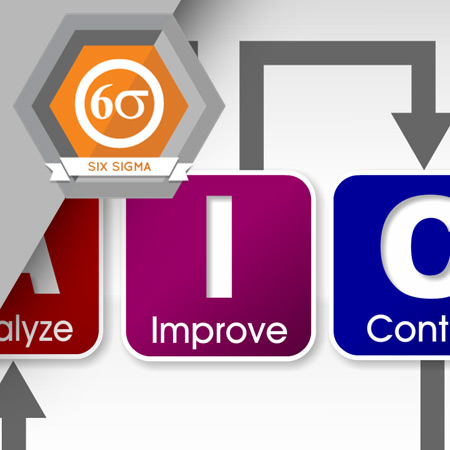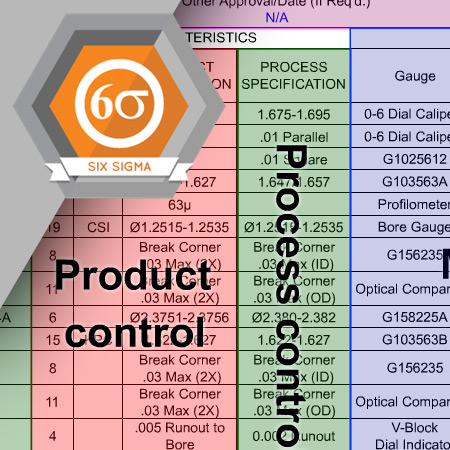
Properly designed experiments are essential to improving a Six Sigma project and making the project successful.
Learning Objectives
- Define terms associated with the design of experiments
- Interpret main effects of a factor
- Interpret interaction plots
Language: English
Estimated Time (Hrs.): 1.3
Micro-module: No
Micro-module Series: No

Statistical Process Control, or SPC, is a quality control methodology that uses statistics to predict variation in processes. SPC is the basis for the control portion of a Six Sigma project.
Learning Objectives
- Define statistical process control
- Define and describe the objectives and benefits of statistical process control
- Explain the types of variation that exist in a process
- Define and describe how rational subgrouping is used
- Identify, select, construct, and apply various control charts
- Interpret various control charts
Language: English
Estimated Time (Hrs.): 1.7
Micro-module: No
Micro-module Series: No

Improvements to a process are almost always needed to meet the goals of an organization. Many Six Sigma tools can be used to implement and validate the improvements.
Learning Objectives
- List the steps to improve a process
- Identify Six Sigma tools used to improve a project
- Identify Six Sigma tools used to validate improvement efforts
Language: English
Estimated Time (Hrs.): 0.8
Micro-module: No
Micro-module Series: No

The control plan is one of the most important documents used to maintain the gains made during the analysis and improve portions of a Six Sigma project. The control plan is a “living” document that is continually updated to capture continuing improvements.
Learning Objectives
- Define the minimum requirements for a control plan
- List sources of information for a control plan
- List required documents based on a control plan
- Define a dynamic control plan
Language: English
Estimated Time (Hrs.): 1
Micro-module: No
Micro-module Series: No
